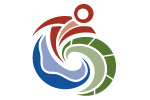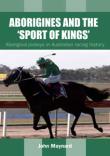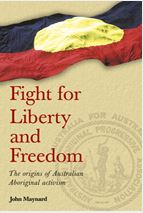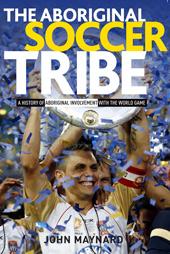AustLit
-
In the ninth of this series of interviews, Anita speaks to John Maynard.
Professor John Maynard is an academic and historian who grew up in the world of horse racing, hanging out with his jockey father Merv Maynard, which inspired his first book, Aboriginal Stars of the Turf: Jockeys of Australian Racing History (2002). John is currently an Australian Research Fellow at The Wollotuka Institute at the University of Newcastle.
-
-
What book or books had an impact on your life and why?
The Autobiography of Malcolm X, Custer Died For Your Sins: An Indian Manifesto by Vine Deloria, and Bury My Heart at Wounded Knee: An Indian History of the American West by Dee Alexander Brown. I read these books in my teens and I still have the dog-eared copies of these books that I continue to draw reference from.
-
Phillip Meyer’s The Son and Killing Kennedy: The End of Camelot by Bill O’Reilly and Martin Dugard.
-
-
Quite a few actually, but One Flew Over the Cuckoo’s Nest by Ken Kesey.
-
What book do you think every Australian should read?
-
My favourite author is Ernest Hemingway. Unfashionable today but it is his short sharp sentences and descriptions of place and country, particularly in his short stories, that I am inspired by.
-
I am a manic writer. I dump things down rapidly. Like a sculptor starting with a large slab of clay - then I peel it back and back until I have a finished piece. There are many drafts. I write very quickly. My last book (The Aboriginal Soccer Tribe) I wrote in six weeks! 60,000 words all in six weeks and it was a highly recommended finalist for the Walkley Awards.
-
'I was trying to learn to write, commencing with the simplest things …' [from] Death in the Afternoon by Ernest Hemingway.
-
A revised edition of my book on Aboriginal jockeys that will be out in November. A book on the artwork of convict artist Joseph Lycett from an Aboriginal perspective for the National Library, and also a book Living with the Locals (also for the National Library) which examines the historical stories of white people who lived with Aboriginal people, and the impact that had on their lives, for example, runaway convicts, shipwreck survivors and people just lost.
You might be interested in...








